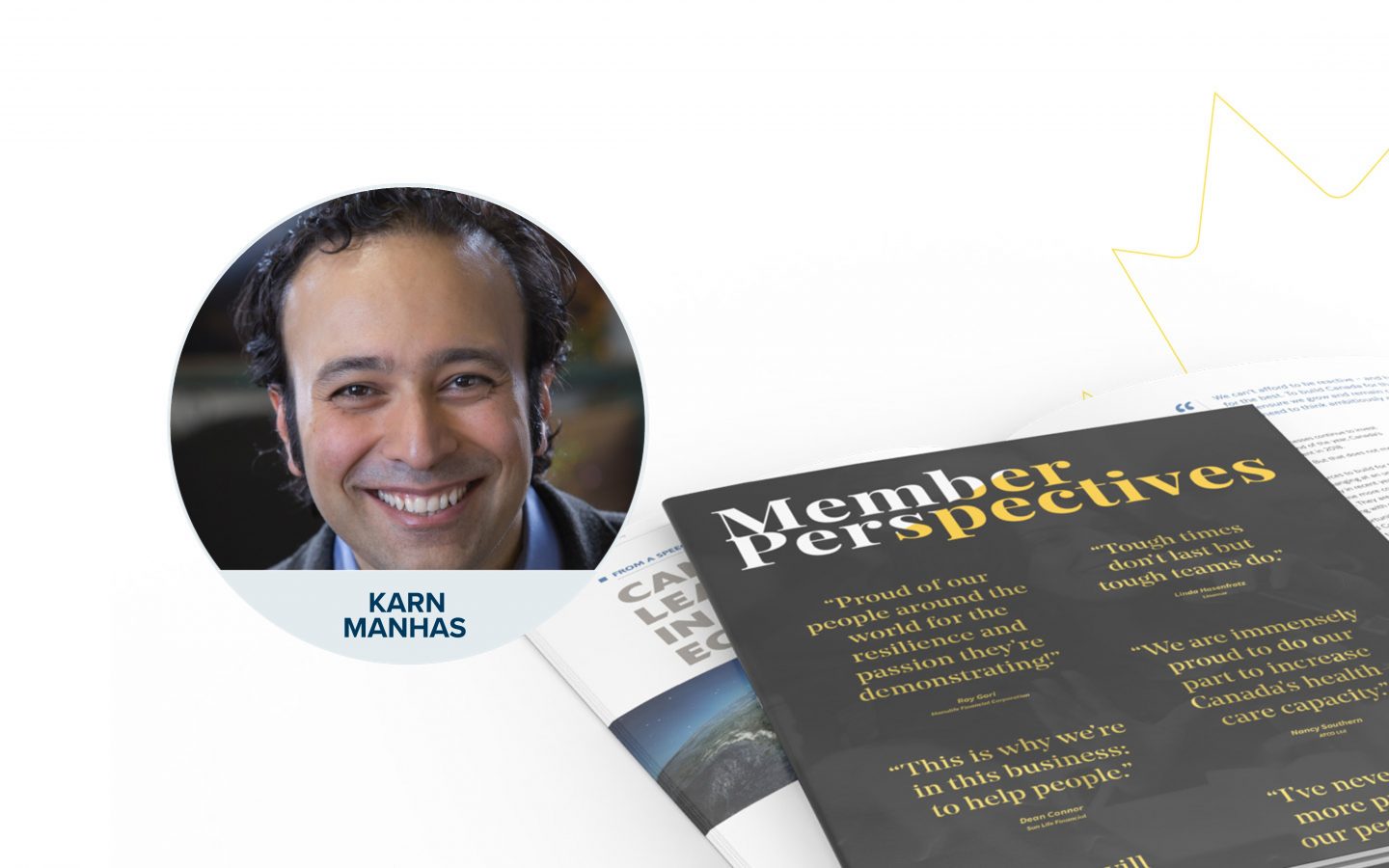Is Agriculture The Way Out Of Canada’s COVID-19 Recession?
As published by the Bay Street Bull.
Humans are terrible multitaskers. In fact, science says we’re completely incapable of it, and yet right now we’re tasked with solving some of humanity’s biggest problems all at once. If living through this year’s health crisis wasn’t stressful enough, we’ve also been forced to reinvent how we do business while navigating the impacts of the deepest recession on record. And, oh yeah, let’s not forget about climate change. How many acres of our forests, some of the key ‘lungs’ of our planet, do we have burning this year?
So what’s the best approach for solving all of these problems? Surprising as it may sound, investing and innovating in a seemingly “old fashioned” industry—agriculture—could be what drives Canada’s economic recovery, unlocking billions in economic value in the process.
An $8 trillion dollar economic opportunity
Even before COVID-19 hit, Canada’s economy was changing. Since March, we’ve seen that accelerate as oil prices dropped, manufacturing faltered, and other sectors struggled. As the federal deficit hits $343 billion and the climate crisis marches on, we can’t rely on investments in stalled industries to pull ourselves out of this financial malaise. Agriculture, on the other hand, offers an unprecedented economic opportunity in the waiting.
COVID-19 showed us the importance of a stable and adequate local food supply, but there’s a much bigger market that needs to be served.
For context, other countries that harness innovation to optimize agricultural output are reaping huge economic rewards. Case in point is the Netherlands, which has 155 times our agricultural productivity and food exports per acre. With just 2.5 million acres of farmland, Dutch farmers bring in $130 billion in agri-food exports annually, compared to the $56 billion in revenue Canada generates from our 160 million acres. If Canada was as productive with our land as the Dutch are with theirs, we could create more than $8 trillion in economic value over the coming decades.
A key reason for the Netherlands’ success is its history of leveraging its significant engineering prowess towards efficiency. Beyond that, its commitment to sustainable agriculture, combined with input from public and private entities, has enabled even the smallest, family-run farms access to cutting-edge technology to grow more food using fewer resources.
Canada has the right ingredients to build on—and surpass—the Dutch example, but to do so we must bridge the gap between urban and rural, and public and private, to grow our economy in a way that could be a model for other nations to follow.
A green recovery, led by farmers
For too long, investment in the economy and investment in the environment have been seen as mutually exclusive. But with a record number of Canadians unemployed, and Canada miles away from its Paris agreement vows, we have no choice but to embrace a green recovery that’s inclusive of all of Canada. As governments invest in economic growth initiatives, there’s huge potential for this movement to be led by farmers.
The burgeoning carbon sequestration industry is one example of agriculture’s untapped potential. Like forests and wildlands, farmers’ fields can naturally absorb and sequester carbon. If we utilize technology to promote regenerative agriculture techniques on Canada’s farmlands and rangelands, we could reduce CO2 emissions beyond net zero and tap into an estimated trillion-dollar market. Regenerative farming practices, which actively restore our land while creating more nutrient-rich soil and better quality food, could transform our farmland into carbon sinks, pulling nearly 4 billion tonnes of CO2—five times Canada’s total emissions—from the atmosphere each year.
Canada is already innovating in this area, but the key to transforming the country into a global model for advanced agriculture lies in validating regenerative activities with data, and making homegrown technologies accessible and ready to scale. Right now, we have a lot of work to do to get reliable data on the effect of inputs and regenerative practices because sophisticated data collection systems aren’t available to average farmers. With increased government incentives and tech investment we could transform every farm into a high-tech model for sustainable growth with intelligent, reliable data and advice. Thus, creating more money for farmers and a variety of fulfilling, high-paying jobs along the way.
Agriculture in 2020 and beyond
There’s a misconception that innovation in farming means further stress and cost for farmers. But the true impact of innovation will be a net increase in profitability and jobs. At just 10 percent of the Netherlands’ rate of jobs per acre, Canada could create 2.5 million new jobs, building our rural and urban economies.
Applying homegrown technologies to farming can help increase yields and profits for farmers and transform the perception of farming as a back-breaking job with little financial return into a vital and prosperous career path. By marrying our intellectual prowess with our vast fertile lands, we can attract young people into our fields either as farmers or highly paid tech workers to collect and analyze reams of data that can help us make better decisions around what, when and how to plant. Furthermore, we can apply what we learn to better predict and withstand threats such as pests, disease and the impacts of an increasingly unpredictable climate. We can also reduce our reliance on harmful chemicals and disruptive land use techniques that have eroded our ecosystems over the last century.
More than anything, what’s needed to bring this vision to reality is a change in mindset. A shift towards looking at agriculture as a vehicle for systemic, globally relevant change rather than a stagnant industry focused on a narrow ledger of yields and profits.
Right now Canada isn’t living up to its potential in this area. As we tackle economic recovery in a COVID-19 world, we have tremendous opportunity to punch above our weight and emerge as a global leader. But time is of the essence. If COVID has taught us anything, it’s that we have a choice to make between sticking with the status quo or reinventing our systems and society for the better. We can keep farming like we have been, or we can come together to forge a new way forward—one that’s better for our economy and the environment—making us a model for the rest of the world.










